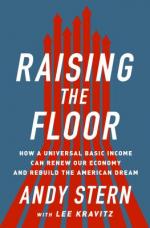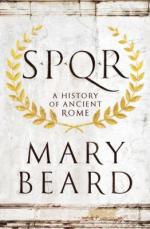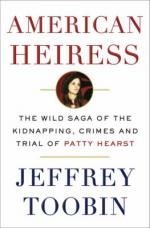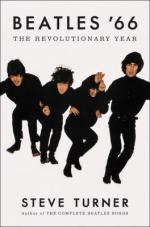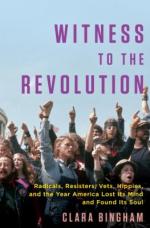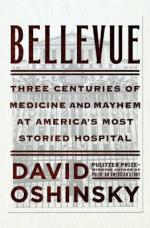- Books
- May We Suggest
- 1960s music
- music
- rock music
- Rock Musicians
- 1960s
- Ancient History
- Rome
- United States history
- counter-revolution
- student movements
- Vietnam War
- Symbionese Liberation Army
- Patty Hearst
- Beatles
- Business
- Government/Law
- Health
- History
- True Facts
January 7, 2017 | madame librarian
The following Adult non-fiction titles were chosen as CPL librarians' favorites of 2016. Check them out today!
Advances in technology are creating the next economy and enabling us to make things/do things/connect with others in smarter, cheaper, faster, more effective ways. But the price of this progress has been a de-coupling of the engine of prosperity from jobs that have been the means by which people have ascended to (and stayed in) the middle class. Andy Stern, the former president of the Service Employees International Union (SEIU) spent four years traveling the country and asking economists, futurists, labor leaders, CEOs, investment bankers, entrepreneurs, and political leaders to help picture the U.S. economy 25 to 30 years from now. He vividly reports on people who are analyzing and creating this new economy--such as investment banker Steve Berkenfeld; David Cote, the CEO of Honeywell International; Andy Grove of Intel; Carl Camden, the CEO of Kelly Services; and Geoffrey Canada of the Harlem Children's Zone. Through these stories, we come to a stark and deeper understanding of the toll technological progress will continue to take on jobs and income and its inevitable effect on tens of millions of people. But there is hope for our economy and future. The foundation of economic prosperity for all Americans, Stern believes, is a universal basic income. The idea of a universal basic income for all Americans is controversial but American attitudes are shifting. Stern has been a game changer throughout his career, and his next goal is to create a movement that will force the political establishment to take action against s
omething that many on both the right and the left believe is inevitable. Stern's plan is bold, idealistic, and challenging--and its time has come.
Ancient Rome was an imposing city even by modern standards, a sprawling imperial metropolis of more than a million inhabitants, a "mixture of luxury and filth, liberty and exploitation, civic pride and murderous civil war" that served as the seat of power for an empire that spanned from Spain to Syria. Yet how did all this emerge from what was once an insignificant village in central Italy? In S.P.Q.R., world-renowned classicist Mary Beard narrates the unprecedented rise of a civilization that even two thousand years later still shapes many of our most fundamental assumptions about power, citizenship, responsibility, political violence, empire, luxury, and beauty.
From "New Yorker" staff writer and bestselling author of "The Nine "and "The Run of His Life: The People v. O. J. Simpson," the definitive account of the kidnapping and trial that defined an insane era in American history OnFebruary 4, 1974, Patty Hearst, a sophomore in college and heiress to the Hearst family fortune, was kidnapped by a ragtag group of self-styled revolutionaries calling itself the Symbionese Liberation Army. The already sensational story took the first of many incredible twists on April 3, when the group released a tape of Patty saying she had joined the SLA and had adopted the nom de guerre Tania. The weird turns of the tale are truly astonishing the Hearst family trying to secure Patty s release by feeding all the people of Oakland and San Francisco for free; the bank security cameras capturing Tania wielding a machine gun during a robbery; a cast of characters including everyone from Bill Walton to the Black Panthers to Ronald Reagan to F. Lee Bailey; the largest police shoot-out in American history; the first breaking news event to be broadcast live on television stations across the country; Patty s year on the lam, running from authorities; and her circuslike trial, filled with theatrical courtroom confrontations and a dramatic last-minute reversal, after which the term Stockholm syndrome entered the lexicon. The saga of Patty Hearst highlighted a decade in which America seemed to be suffering a collective nervous breakdown. Based on more than a hundred interviews and thousands of previously secretdocuments, "American Heiress" thrillingly recounts the craziness of the times (there were an average of 1,500 terrorist bombings a year in the early 1970s). Toobin portrays the lunacy of the half-baked radicals of the SLA and the toxic mix of sex, politics, and violence that swept up Patty Hearst and re-creates her melodramatic trial. "American Heiress "examines the life of a young woman who suffered an unimaginable trauma and then made the stunning decision to join her captors crusade. Or did she?"
A riveting look at the transformative year in the lives and careers of the legendary group whose groundbreaking legacy would forever change music and popular culture. They started off as hysteria-inducing pop stars playing to audiences of screaming teenage fans and ended up as musical sages considered responsible for ushering in a new era. The year that changed everything for the Beatles was 1966-- the year of their last concert and their first album, Revolver, that was created to be listened to rather than performed. This was the year the Beatles risked their popularity by retiring from live performances, recording songs that explored alternative states of consciousness, experimenting with avant-garde ideas, and speaking their minds on issues of politics, war, and religion. It was the year their records were burned in America after John's explosive claim that the group was "more popular than Jesus," the year they were hounded out of the Philippines for "snubbing" its First Lady, the year John met Yoko Ono, and the year Paul conceived the idea for Sgt. Pepper's Lonely Hearts Club Band. On the fiftieth anniversary of this seminal year, music journalist and Beatles expert Steve Turner slows down the action to investigate in detail the enormous changes that took place in the Beatles' lives and work during 1966. He looks at the historical events that had an impact on the group, the music they made that in turn profoundly affected the culture around them, and the vision that allowed four young men from Liverpool to transform popular music and serve as pioneers for artists from Coldplay to David Bowie, Jay-Z to U2. By talking to those close to the group and by drawing on his past interviews with key figures such as George Martin, Timothy Leary, and Ravi Shankar-- and the Beatles themselves--Turner gives us the compelling, definitive account of the twelve months that contained everything the Beatles had been and anticipated everything they would still become.
The electrifying story of the turbulent year when the sixties ended and America teetered on the edge of revolution As the 1960s drew to a close, the United States was coming apart at the seams. From August 1969 to August 1970, the nation witnessed nine thousand protests and eighty-four acts of arson or bombings at schools across the country. It was the year of the My Lai massacre investigation, the Cambodia invasion, Woodstock, and the Moratorium to End the War. The American death toll in Vietnam was approaching fifty thousand, and the ascendant counterculture was challenging nearly every aspect of American society. Witness to the Revolution , Clara Bingham's unique oral history of that tumultuous time, unveils anew that moment when America careened to the brink of a civil war at home, as it fought a long, futile war abroad.
A fascinating and unusual chapter in American history about a religious community that held radical notions of equality, sex, and religion--only to transform itself, at the beginning of the twentieth century, into a successful silverware company and a model of buttoned-down corporate propriety.
"Bellevue Hospital, on New York City's East Side, occupies a colorful and horrifying place in the public imagination- a den of mangled crime victims, vicious psychopaths, assorted derelicts, lunatics, and exotic-disease sufferers. In its two and a half centuries of service, there was hardly an epidemic or social catastrophe-or groundbreaking scientific advance-that did not touch Bellevue. David Oshinsky, whose last book, Polio- An American Story , was awarded a Pulitzer Prize, chronicles the history of America's oldest hospital and in so doing also charts the rise of New York to the nation's preeminent city, the path of American medicine from butchery and quackery to a professional and scientific endeavor, and the growth of a civic institution.

